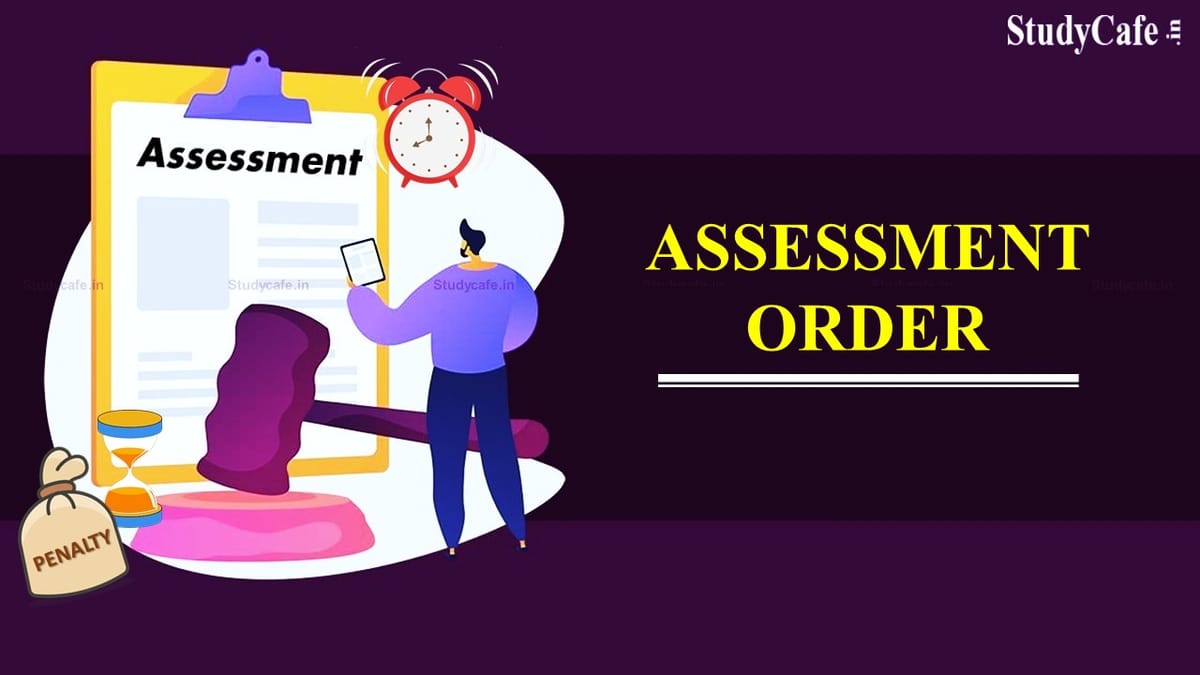Penalty u/s 271(1)(c) cannot be imposed when assessment order does not specify the reason
CA Ayushi Goyal | Apr 27, 2022 |

Penalty u/s 271(1)(c) cannot be imposed when assessment order does not specify the reason as to whether the proceedings were initiated for concealment of particulars of income or for furnishing of inaccurate particulars of income.
The issue in this appeal of the assessee is regard to the penalty levied u/s 271(1)(c) of the Income Tax Act, 1961 (The Act).
In this matter, the assessee is a non-resident individual who filed his return of income for the A.Y. 2015-16 declaring total income of Rs.NIL and claiming refund of Rs.1,57,660/-. During the assessment proceedings, the assessee filed revise return of income declaring total income of Rs. 1,17,00,870/-. On the income offered by assessee in revise return, the AO levied penalty of Rs. 26,51,420 u/s 271(1)(c).Aggrieved by the penalty order, the assessee carried the matter in appeal before the Ld. CIT(A) who upheld the penalty levied by the A.O.
Aggrieved by the order of the Ld. CIT(A) the assessee filed appeal before the tribunal. The ld AR submitted that the assesee was a non resident Indian. During the relevant assessment year, he had sold the property for sale consideration of Rs. 1,50,00,000/- and earned long term capital gain of Rs. 1,17,00,867/-. He further submitted that the assessee being not aware about the intricacies of Income Tax Act, invested the sale consideration in Mutual Funds in order to keep it readily available for utilization for purchase of house property.
Thereafter, assessee was advised about the requirement of depositing the funds in capital gain saving scheme account and the investments in the mutual funds being not permissible form of deposit and, therefore, was not eligible for claiming deduction under section 54 of the I.T. Act, 1961. The assessee upon realizing the mistake and foreseeing that he won’t be able to buy the property despite the efforts put in by him, he revised its computation of income and paid the taxes thereon. He, therefore, submitted that assessee had not concealed any particulars of income and was under bonafide belief that investment made in mutual funds was an eligible mode for claiming the deduction. He further submitted that assessee had filed his revised return of income within the due time prescribed under section 139(5) of the Act and also much before completion of the assessment and, therefore, the revision of income cannot be disregarded. He also sumitted that the notice of penalty by the AO is vague as notice does not specifically state the ground on which penalty proceedings have been initiated i.e., whether penalty has been levied for concealment of particulars of income or for furnishing inaccurate particulars of income. The Ld. D.R. on the other hand supported the orders of the lower authorities. After considering the submissions made by both the parties, ITAT was of the view that the Assessing Officer was not justified in levying penalty under Section 271(l)(c) of the Act and therefore set aside the penalty levied by the AO. ITAT held that penalty under Section 271(l)(c) was not leviable when the notice issued by Assessing Officer did not specify as to whether the proceedings were initiated for concealment of particulars of income or for furnishing of inaccurate particulars of income.
To Read Judgement Download PDF Given Below:
In case of any Doubt regarding Membership you can mail us at [email protected]
Join Studycafe's WhatsApp Group or Telegram Channel for Latest Updates on Government Job, Sarkari Naukri, Private Jobs, Income Tax, GST, Companies Act, Judgements and CA, CS, ICWA, and MUCH MORE!"